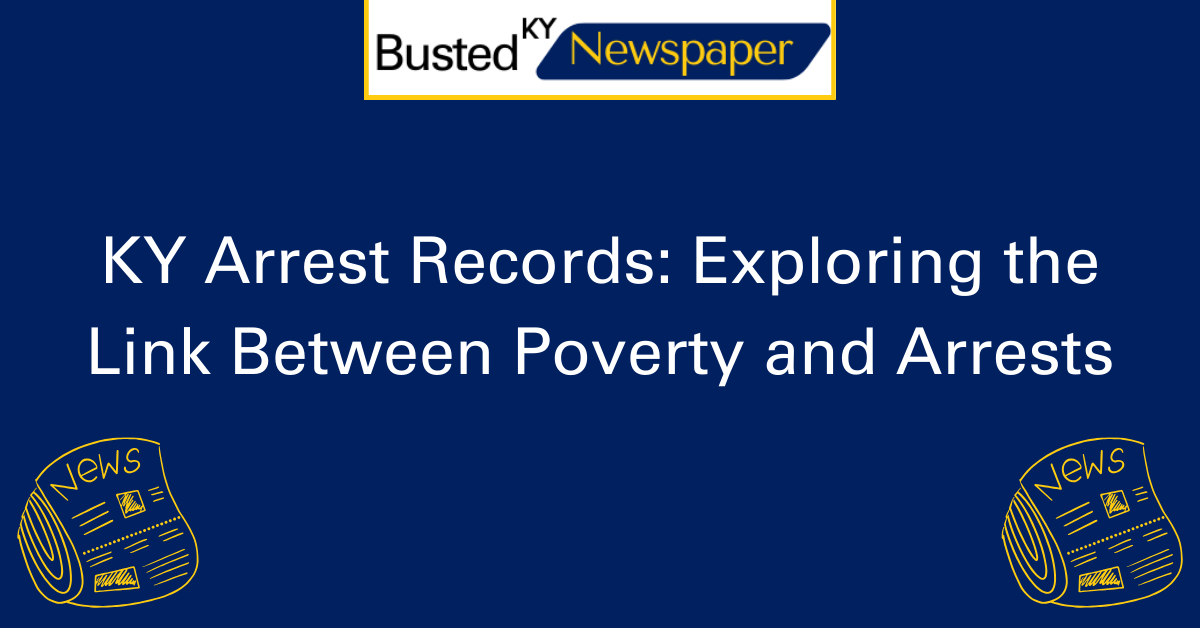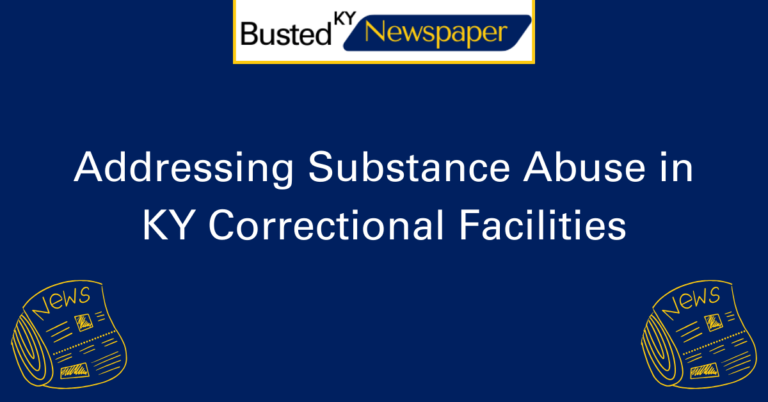KY Arrest Records: Exploring the Link Between Poverty and Arrests
In this Comprehensive Guide, we will delve into the link between poverty and arrests in the state of Kentucky. By examining the data and analyzing various factors, we aim to provide you with a comprehensive understanding of how poverty can impact arrest rates.
Throughout this article, we will explore the reasons behind this connection, highlighting the socioeconomic factors that contribute to higher arrest rates among individuals living in poverty. Additionally, we will examine the implications of these findings, shedding light on the potential consequences for both individuals and society as a whole.
Socioeconomic Factors Contributing to Higher Arrest Rates
When examining the link between poverty and arrests in Kentucky, it is crucial to consider the socioeconomic factors that contribute to this connection. One key factor is the lack of access to quality education and employment opportunities. Individuals living in poverty often face limited access to education, which can hinder their ability to secure stable employment. This lack of economic stability increases the likelihood of engaging in criminal activities as a means of survival.
The Cycle of Poverty and Crime
Another important aspect to understand is the vicious cycle that poverty and crime create. Individuals living in poverty are more likely to engage in criminal activities, which can lead to arrests and subsequent incarceration. Once released, these individuals face significant challenges in reintegrating into society and finding stable employment, perpetuating the cycle of poverty and crime.
Impact on Individuals and Society
The link between poverty and arrests in Kentucky has far-reaching implications for both individuals and society as a whole. For individuals, a criminal record can severely limit future opportunities, making it difficult to find employment, secure housing, or access social services. This perpetuates the cycle of poverty and increases the likelihood of reoffending.
On a societal level, higher arrest rates among individuals living in poverty contribute to an overburdened criminal justice system. Resources that could be used for prevention and rehabilitation are instead allocated towards handling arrests and incarcerations. This not only strains the criminal justice system but also hinders the overall development and well-being of the community.
Addressing the Issue
To break the cycle of poverty and arrests in Kentucky, it is essential to address the underlying socioeconomic factors that contribute to this link. This includes investing in quality education and vocational training programs for individuals living in poverty, providing them with the skills and opportunities necessary to secure stable employment and break free from the cycle of crime.
Collaborative Efforts for Change
Addressing the link between poverty and arrests requires a collaborative effort from various stakeholders. Government agencies, non-profit organizations, and community leaders need to work together to implement comprehensive strategies that address the root causes of poverty and create a supportive environment for individuals to thrive.
Path Towards a Brighter Future
By understanding the intricate relationship between poverty and arrests in Kentucky, we can work towards implementing effective solutions that break the cycle and create a brighter future for individuals and communities. Through targeted interventions, increased access to resources, and a commitment to social justice, we can strive toward a society where poverty no longer determines one’s fate.
FAQ’s
What is the correlation between poverty and arrests?
Poverty and arrests have a strong correlation, with studies showing that individuals living in poverty are more likely to be arrested compared to those with higher socioeconomic status. This connection is attributed to various factors such as limited access to quality education, lack of employment opportunities, and higher exposure to crime-ridden neighborhoods.
In Kentucky, poverty plays a significant role in the higher arrest rates observed. The state’s economic challenges, including high levels of unemployment and limited social support systems, contribute to the cycle of poverty and crime. Individuals facing economic hardship often resort to illegal activities as a means of survival, leading to increased arrest rates.
What are the implications of the poverty-arrest link?
The implications of the poverty-arrest link are multifaceted. From an individual perspective, being caught in the cycle of poverty and arrests can hinder opportunities for personal growth and development. It can lead to a criminal record, making it challenging to find employment or access social services. On a societal level, the higher arrest rates among the impoverished strain the criminal justice system and perpetuate socioeconomic disparities in communities.
What can be done to address this issue?
To address the complex relationship between poverty and arrests, comprehensive measures are needed. These include implementing policies that promote economic opportunities, investing in education and job training programs, and providing support services for individuals living in poverty. Additionally, addressing underlying issues such as systemic inequalities and improving access to social and economic resources can help break the cycle of poverty and reduce arrest rates.
How can understanding this link benefit society?
Understanding the link between poverty and arrests is crucial for society as it allows policymakers, community leaders, and individuals to develop targeted interventions and strategies. By addressing the root causes of poverty and investing in social and economic development, we can reduce crime rates, promote social equity, and create a safer and more inclusive society for all.







